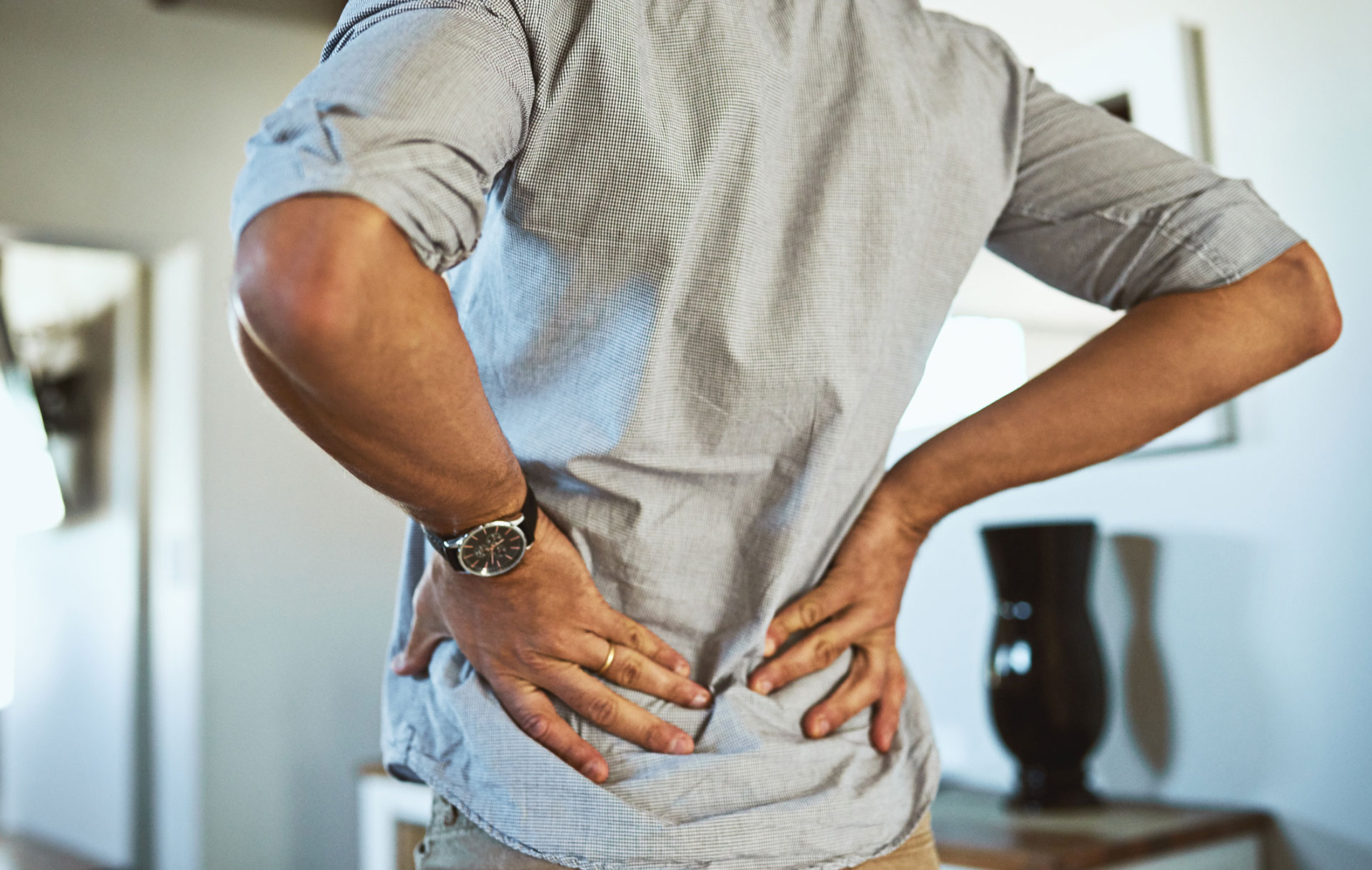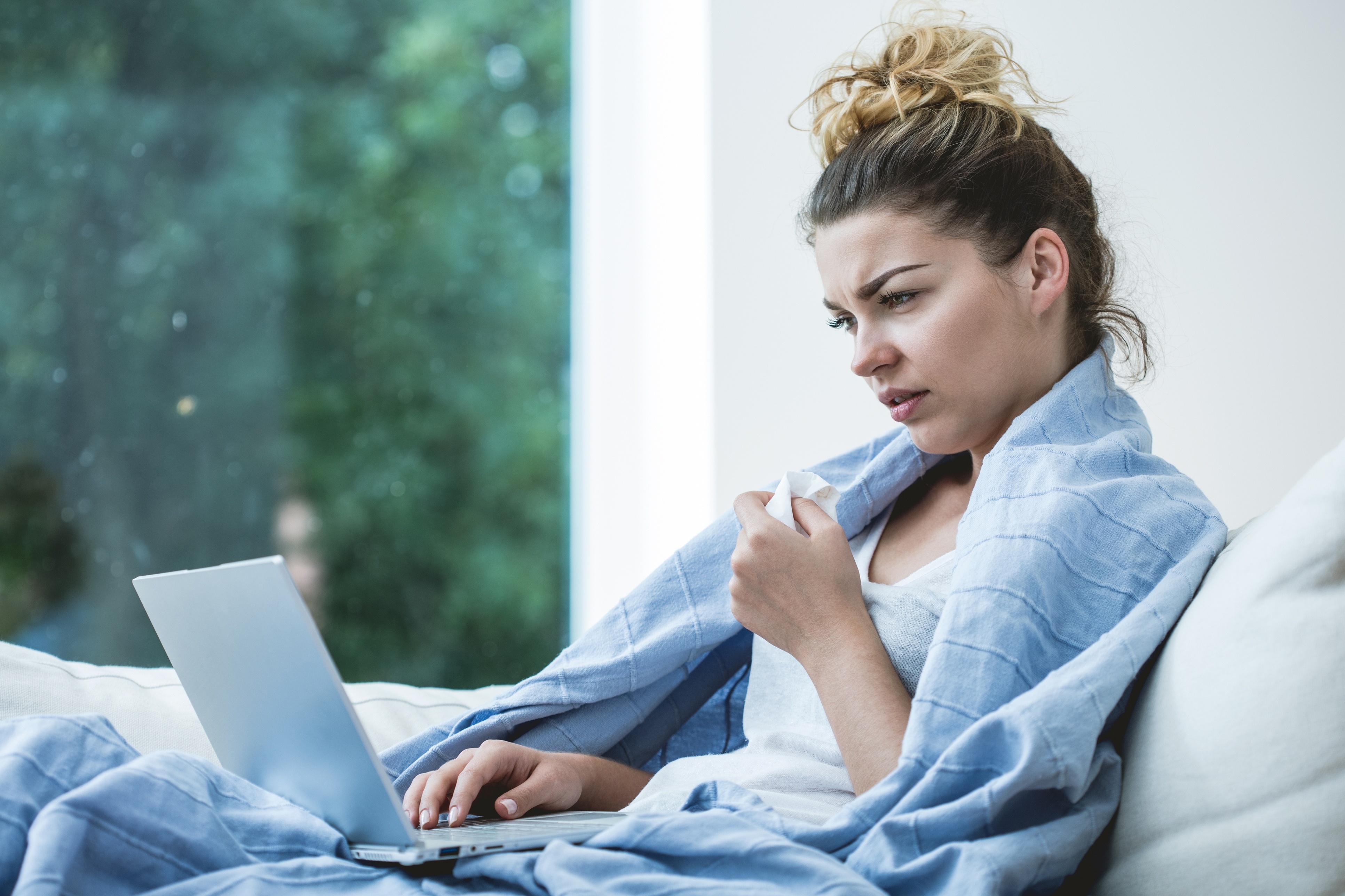-
It could be a dull ache burning through your lower back, making you feel stiff. Or maybe it feels sharper, more aggressive. It can cause muscle spasms, or radiate pain into your buttocks and down through your legs. It can make walking or even standing difficult.
Low back pain can have a real impact on your vitality, wellbeing and ability to perform all your daily activities. And it’s an incredibly common experience.
Watch the Medibank Health Update
Is low back pain holding you back?

-
“Low back pain can affect anyone at any age, and most of us will experience it at some point in our lives,” says Professor Rachelle Buchbinder, Rheumatologist and Director, Monash Department of Clinical Epidemiology, Cabrini Institute and Monash University.
On any given day, 1 in 4 Australians suffers from low back pain, according to a series of papers on the topic published in The Lancet in 2018. It’s the leading cause of disability worldwide, and it’s becoming more common as our population ages and grows. In fact, the Global Burden of Disease Study 2018 shows that disability due to back pain has grown by over 50% since 1990.
What causes low back pain?
For most people with low back pain, the exact cause can’t be identified, so it’s referred to as ‘non-specific’. The pain may come from issues with the muscles, ligaments and joints.
People of nearly all ages experience back pain. It is uncommon in children but increases in teenage years, peaks in middle age and remains common into old age. Genetic and lifestyle factors like smoking, obesity and lack of physical activity increase the risk of low back pain, as does having had a previous episode, and being in poor physical or mental health. Your risk may also be increased by awkward postures, heavy manual tasks, feeling tired or being distracted during an activity.
In a very small number of cases, low back pain can be caused by a more serious condition such as a vertebral fracture, cancer, infection or an inflammatory arthritis. These need specific treatment. However, they make up a small proportion of cases.
Can movement help?
It can feel like the pain is holding you back, and you may find yourself avoiding things because of it. But Professor Buchbinder says active recovery is the key to finding relief.
“People may mistakenly believe that you need to rest in bed and avoid physical activity,” she says.
While prolonged rest, staying away from work and avoiding regular activities are common responses to low back pain, research suggests this approach may not be very helpful, and could actually make you feel worse. As Professor Buchbinder and her colleagues explain in The Lancet, self-management strategies like gentle exercise can help you learn to cope with the pain and find some relief.
“There’s a lot people can do to help themselves, but it’s not always an easy fix,” Professor Buchbinder says. “People need to help themselves through exercise, maintaining a healthy weight and not being afraid to move.”
It doesn't matter what type of exercise you do, Professor Buchbinder says. Whether it's swimming, walking or yoga, the important thing is to find something you enjoy, so that you're more likely to keep doing it regularly.
For a safe and effective exercise program, consider seeing an accredited physiotherapist or exercise physiologist. They can design a plan specifically for your needs, that gets your body feeling its best.
-
Tips for managing low back pain
Most people recover quickly from episodes of low back pain, but recurrent episodes are common. If you’re experiencing low back pain that isn’t improving or that worries you, talk to your health care professional. They can make sure it isn’t due to a serious cause, and help you put together a management plan. They can also refer you to other health professionals if needed.
Here are a few things that may help:
Get moving. Find one or more types of exercise you enjoy doing and schedule it into your weekly routine. Aerobic, strength and flexibility exercises may all provide benefits for low back pain, as well as boosting your overall health and wellbeing. A physiotherapist or exercise physiologist can help you with a safe and effective exercise plan.
Maintain a healthy weight. Being obese or overweight can contribute to low back pain. If you think you might need to lose some weight, talk to your doctor for advice. Eating more fresh, whole foods, cutting back on alcohol, and increasing your physical activity is a good place to start.
Stretch it out. Stretching the muscles that support your spine can help relieve tension and increase your range of motion. Your health professional can guide you on the best stretches.
Try hot or cold packs. Heat or cold applied to the lower back may help soothe pain. A warm bath may also bring some relief.
Soothe stress. Stress can play a big role in pain. Try relaxation techniques like deep breathing to calm the mind and reduce tension from muscles. If the pain persists, yoga or mindfulness-based stress reduction techniques may help.
Lift safely. Make sure you’re using correct technique when lifting or carrying things. Lift from your legs and avoid twisting your spine or sudden movements. Don’t try to carry things that are too heavy.
Try to continue your usual activities, including work. Trying to maintain your usual activities, even if you need to modify them a bit, is better than stopping them altogether. The sooner you can resume normal function the better. If you spend a lot of your day sitting, try to take frequent short breaks to stretch and move.
MORE: Managing low back pain
-
Can a little self-care be better for the whole family?
New data reveals the benefits of ‘self-care’
-
Anxious Australia: mental health conditions continue to increase
More than a quarter of young Aussies now living with anxiety
-
What is the ideal weight gain during pregnancy?
Weight gain is a natural and healthy part of pregnancy – but research shows 3 in 4 women are gaining too much or too little. Here’s what you need to know.
-
How can you reduce your risk of dementia?
New research suggests the lifestyle risk factors for dementia may be different for men and women.
-
Does your child have a sleep problem?
One in three Australian children experiences poor sleep, research shows.
Subscribe to receive the best from Live Better every week. Healthy recipes, exercise tips and activities, offers and promotions – everything to help you eat, move and feel better.
By clicking sign up I understand and agree to Medibank's privacy policy







